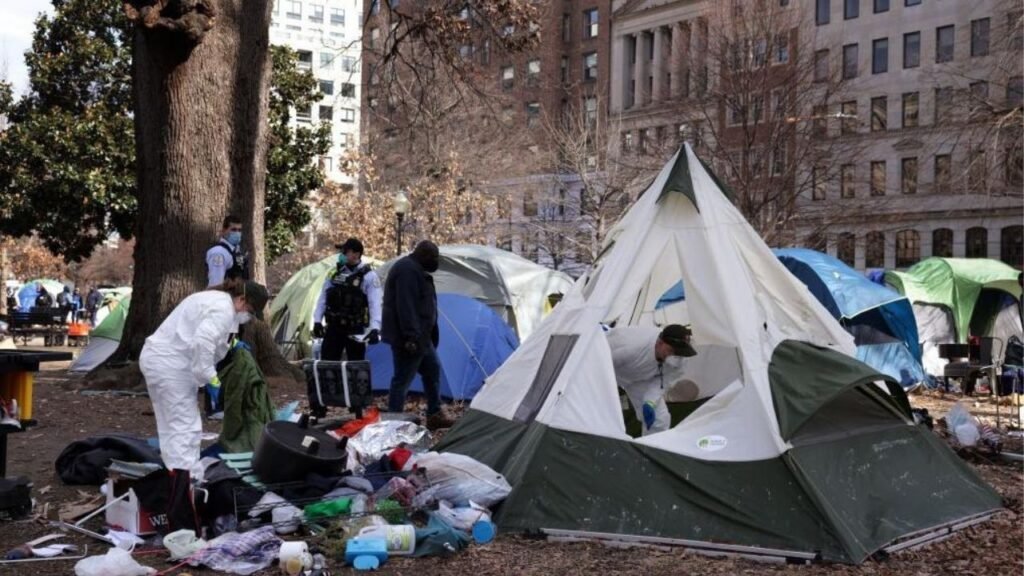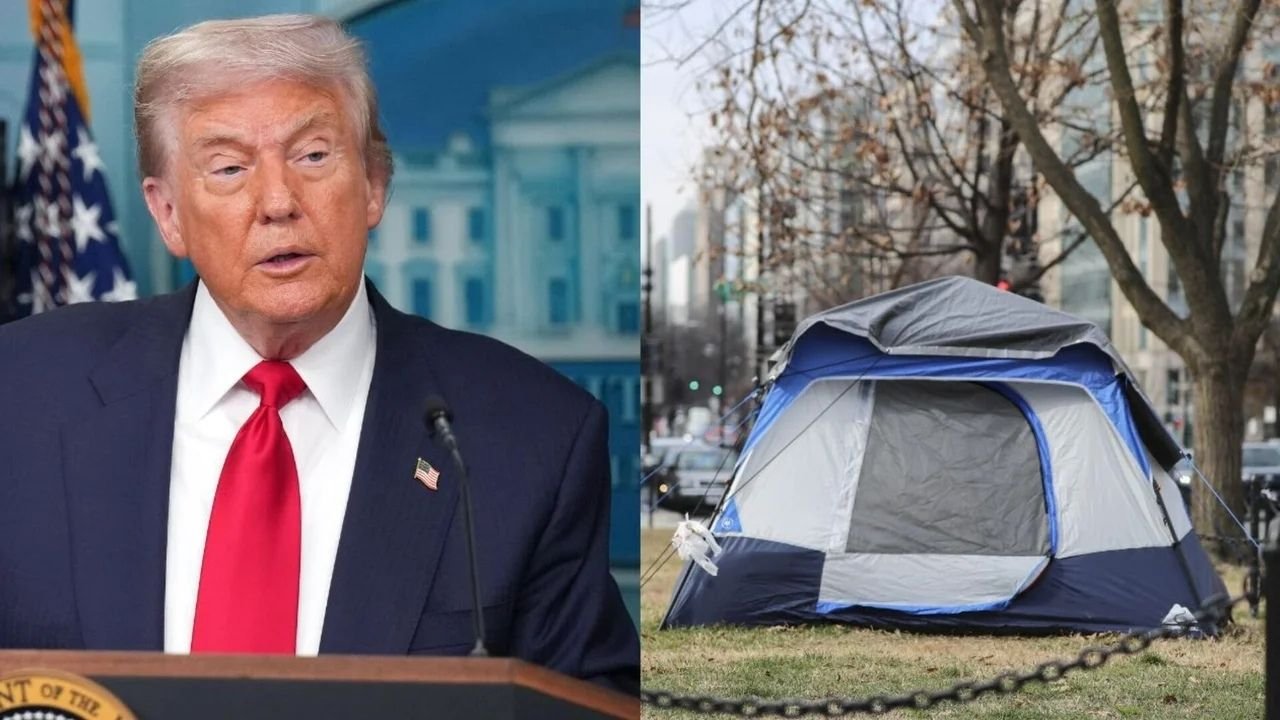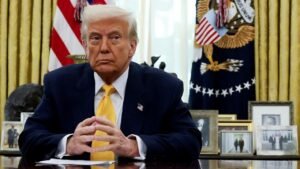President Donald Trump has launched a sweeping federal takeover of regulation enforcement in Washington, D.C., followed by using dramatic claims that crime inside the capital is spiraling out of manipulate. Simultaneously, the administration has initiated aggressive movements to clean homeless encampments, raising alarms among local officers, advocates, and civil liberties companies.
Federal Takeover and Homeless Encampment Clearings
In a move that bypasses local authority, Attorney General Pam Bondi has appointed DEA Chief Terry Cole as the “emergency police commissioner,” placing the Metropolitan Police Department under federal control. The White House has deployed over 800 National Guard troops, together with FBI, DEA, and DHS personnel, ostensibly to patrol and surveil—no longer to at once put in force arrests.
These movements coincide with a forceful marketing campaign to dismantle homeless encampments across the town. The management claims to provide shelter, dependancy treatment, or intellectual health services to individuals, threatening fines or detention for folks that refuse. However, prison specialists and advocates argue that no law in D.C. Permits forcibly transferring people into shelters or punishing them for declining, in particular whilst refuge capability is restricted.
Crime Trends Tell a Different Story
Contrary to Trump’s dire portrayal, crime in D.C. is trending downward:
- Violent crime in 2024 fell 26% from the previous year, reaching a 30-year low, according to DOJ and MPD data.
- The Department of Justice reports an overall 35% drop in violent crime since 2023, including significant declines in homicides, armed carjackings, and assaults with dangerous weapons.
- Local officials maintain that the city is not experiencing a crime spike. Mayor Muriel Bowser and MPD leaders defend the integrity of crime data and denounce Trump’s portrayal as misleading.
- In response, Trump has floated the idea of releasing his own crime statistics, dismissing official data as manipulated.

Political and Humanitarian Fallout
Local leaders, inclusive of Mayor Bowser and the D.C. Council Chair Phil Mendelson, are strongly opposing the federal actions, branding them unlawful and a risky encroachment on the metropolis’s home rule.
Advocates warn those encampment sweeps do little to deal with homelessness and rather disrupt agree with and continuity in social services:
- Individuals displaced frequently lose vital property consisting of IDs, remedy, or contact records for carrier providers.
- Decades of efforts to construct trusting relationships are undone when people are forcibly removed from encampments.
Local nonprofit leaders emphasize that such cleanups, with out long-lasting solutions, simply shuffle the hassle and re-traumatize susceptible people.
Summary Table
- Trump’s portrayal: A crime-ridden, ungovernable D.C., justifying sweeping federal intervention and homeless encampment clearings.
- Data says otherwise: Crime is falling—violent crime and homicides are significantly down.
- Encampment policy flaws: Sweeps displace vulnerable individuals without guaranteeing shelter or solutions.
- Political fallout: The federal action is seen by many as heavy-handed and undemocratic, potentially overstepping legal boundaries and undermining local authority.
| Issue | Trump’s Claim | Reality & Concerns |
|---|---|---|
| Crime Level | Crime in DC is soaring and out of control | Crime rates have declined sharply; long-term improvements documented |
| Law Enforcement | Federal takeover needed for safety | Critics label it an authoritarian overreach |
| Homeless Policy | Encampments cleared; shelters offered | Threatened fines/jails; limited shelter capacity; no legal mandate |
| Impact on Homeless | Shows strength, improves appearance | Trauma, displacement, disrupted services, human rights concerns |
Final Thought
President Trump’s depiction of D.C. As a crime-ridden capital is at odds with authoritative crime information showing its lowest levels in decades. Nevertheless, that narrative changed into used to justify sweeping federal actions—including deploying troops, taking up neighborhood policing, and dismantling homeless encampments. While framed under the banner of protection and cleanliness, these policies have drawn fierce grievance for sacrificing empathy, due method, and powerful answers in choose of optics and coercion.

